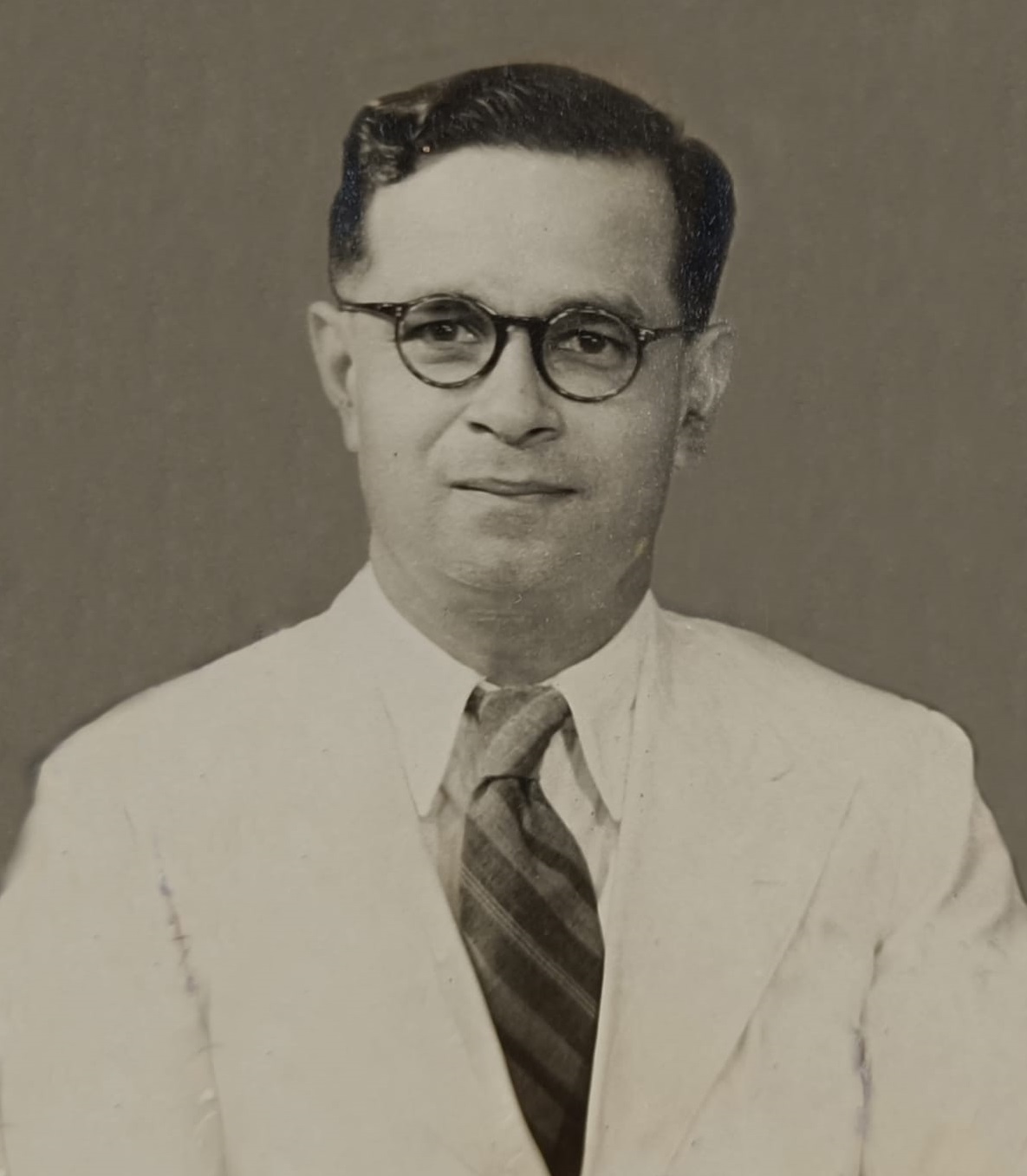A prominent leader of the Indian freedom movement in Malaya and noted diplomat in independent India, Nedyam Raghavan was born at Guruvayur, Kerala. He had his schooling in Trichur in the State of Travancore-Cochin and graduated from Madras University in history, economics and political science in 1920. He began his career as a journalist at the Daily Express in Madras but soon left for Penang in Malaya to take up a career in law.
Initially, he worked as an assistant to P.K. Nambiyar, a pioneer Indian barrister in Penang and founder of Penang Indian Association in 1924. Raghavan went to England for studying law, and qualified as Barrister-at-Law (Inner Temple), London in 1927. While in London, he was a member of the British Labour Party and Fabian Society. He started practice at Penang in 1928 and soon became a leading barrister at the Bar. For about 20 years he carried on a lucrative legal practice and founded the legal firm of Raghavan & amp; Co at Penang. During these years he devoted as much of his time as possible to public work too. He worked towards betterment of wages for Indian workers in rubber plantations and other places in the cities, towns and villages of Malaya. He set up Indian Swadeshi stores, organized Penang Indian Chamber of Commerce, and wrote regularly leading articles in the weekly journal Indian espousing the cause of Indian freedom. He also became a Director of the Indian.
Raghavan was one of the prominent lawyers who drafted the constitution of the Malaysian Indian Chamber of Commerce (Penang) and served as Vice President, then President of the Straits Settlement Association (Penang). He was President of Penang Indian Association and Central Indian Association of Malaya, 1930-37, 1938-1940, and formed the All Malayan National Congress in 1941.
Raghavan was closely associated with the Indian national movement in Malaya. He became a member of the executive committee of the Indian Independence League formed by Rash Behari Bose and headed the All Malayan Indian Independence League. He was also head of the Hind Swaraj Vidyalaya (India Swaraj Institute) in Penang which was set up to train workers for Indian Independence League. The Japanese occupation of Malaya led to the suppression of Indian Independence League and Hind Swaraj Vidyalaya and Raghavan was forced to leave public life. On the arrival of Subhas Chandra Bose he rejoined the Indian freedom movement. He toured South East Asian countries to garner support for the movement. He joined the Indian National Army of Subhas Chandra Bose. He became the Finance Minister of Azad Hind Government and in charge of Netaji Fund Committee. He was jailed by the British in Singapore, and after the end of war released in 1946. Jawaharlal Nehru visited Malaya in March 1946 to look into the conditions of Indian nationals who had suffered a great deal during the Japanese regime. Raghavan accompanied him on the tour of Singapore and Malaya. He went back to Madras in June 1946. He was appointed Vice-Chairman of the Indian Relief Committee founded by Jawaharlal Nehru.
In 1947, when India gained independence Raghavan entered the Indian diplomatic service, first as Counsul General to Dutch Batavia as well as newly established Indonesian government, 1947-48 and then represented India at Prague, Czechoslovakia, 1948-50. He served as Ambassador of India to Belgium (and concurrently Minister, Luxemburg), 1950-51; Switzerland, Austria, and Holy See, 1951-52; China, 1952-55; Argentina, 1956-59, concurrently to Chile, 1956-1958; and France, 1959-1960. He retired in December 1961.
Wrote a pamphlet for the Asian Relations Conference (1947) titled Freedom Movement in Malaya. Also, later published India and Malaya: A Study (1954).
About the collection: The papers of Nedyam Raghavan were acquired from his daughter Meenakshi Menon through Prof. Shiv Shankar Menon. The collection contains correspondence, diaries that date back to the 1920s, rare press clippings (1930s), articles, INA scrap book and photos. The papers relate to his association with Central Indian Association of Malaya, Indian Independence League, Rash Behari Bose, Subhas Chandra Bose, INA, and as an Indian diplomat in Dutch Batavia, Brussels, Bern, Peking, Buenos Aires and Paris. (Catalogue available)
Donor: Meenakshi Menon
Acquisition: 2023



